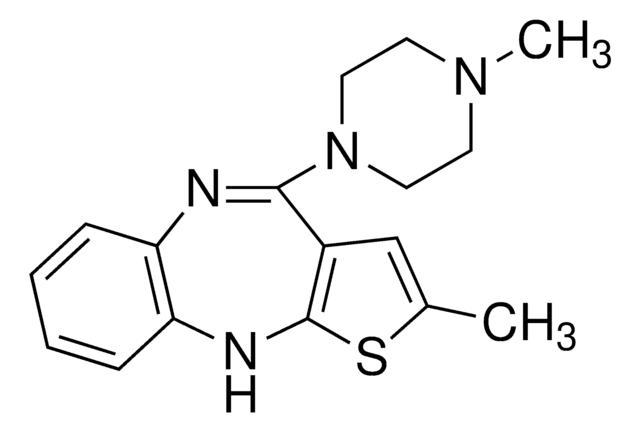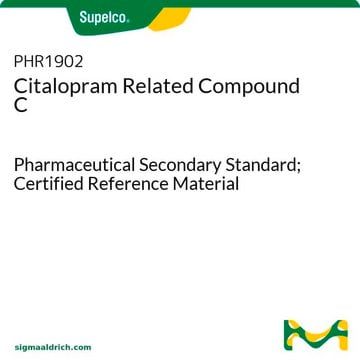Y0001392
Olanzapine impurity A
European Pharmacopoeia (EP) Reference Standard
Synonyme(s) :
5-Methyl-2-[(2-nitrophenyl)amino]-3-thiophenecarbonitrile
About This Item
Produits recommandés
Qualité
pharmaceutical primary standard
Famille d'API
olanzapine
Fabricant/nom de marque
EDQM
Application(s)
pharmaceutical (small molecule)
Format
neat
Température de stockage
2-8°C
InChI
1S/C12H9N3O2S/c1-8-6-9(7-13)12(18-8)14-10-4-2-3-5-11(10)15(16)17/h2-6,14H,1H3
Clé InChI
NPXUFPFFHANGDL-UHFFFAOYSA-N
Vous recherchez des produits similaires ? Visite Guide de comparaison des produits
Description générale
Application
Conditionnement
Autres remarques
Produit(s) apparenté(s)
Mention d'avertissement
Warning
Mentions de danger
Conseils de prudence
Classification des risques
Aquatic Acute 1 - Aquatic Chronic 1
Code de la classe de stockage
11 - Combustible Solids
Classe de danger pour l'eau (WGK)
WGK 3
Point d'éclair (°F)
Not applicable
Point d'éclair (°C)
Not applicable
Choose from one of the most recent versions:
Certificats d'analyse (COA)
Sorry, we don't have COAs for this product available online at this time.
If you need assistance, please contact Service Clients
Déjà en possession de ce produit ?
Retrouvez la documentation relative aux produits que vous avez récemment achetés dans la Bibliothèque de documents.
Notre équipe de scientifiques dispose d'une expérience dans tous les secteurs de la recherche, notamment en sciences de la vie, science des matériaux, synthèse chimique, chromatographie, analyse et dans de nombreux autres domaines..
Contacter notre Service technique





